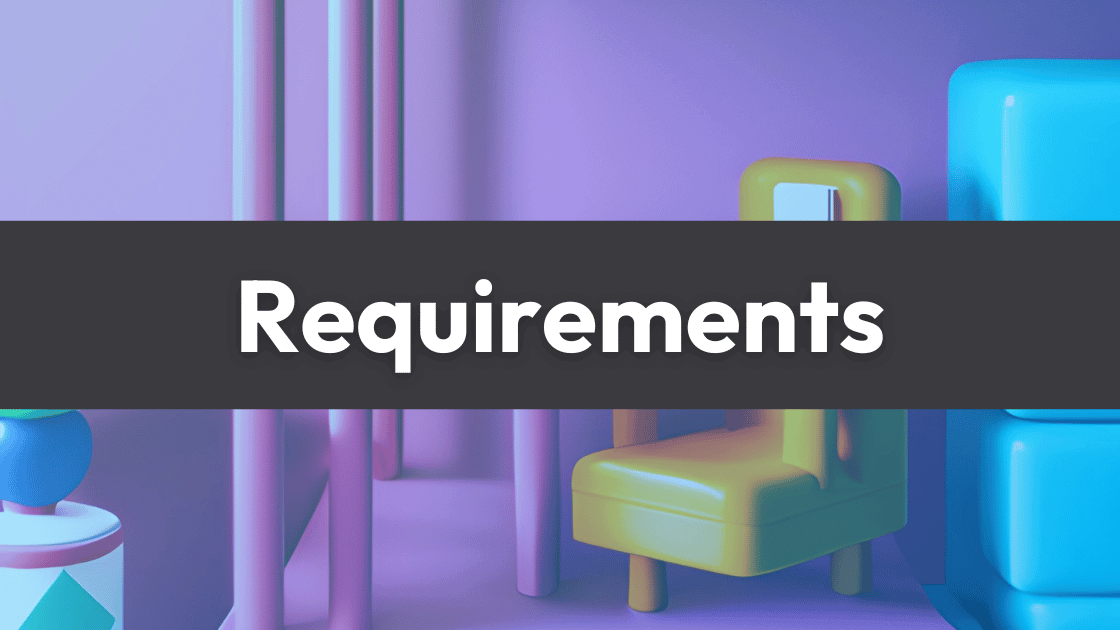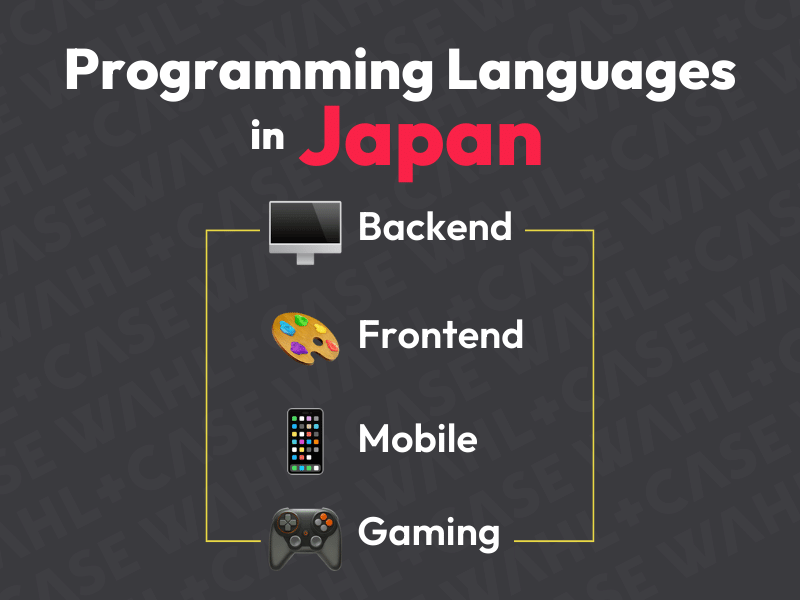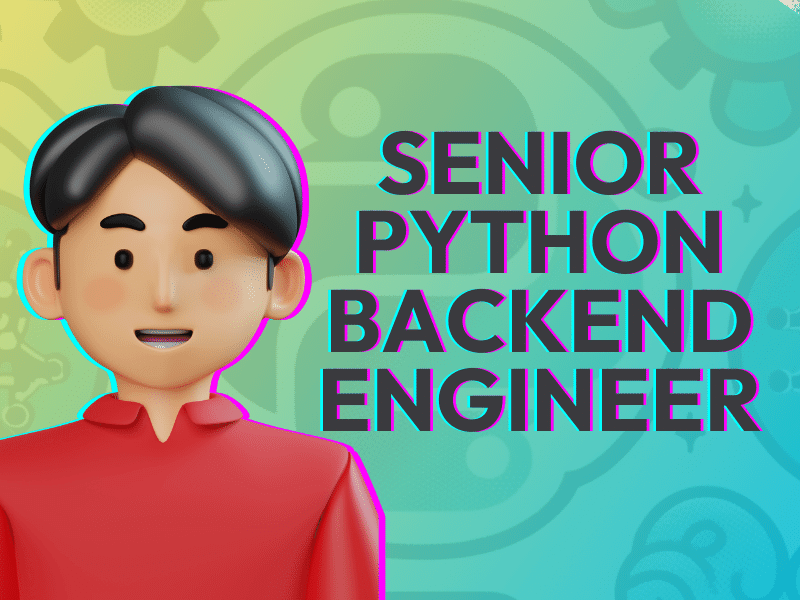Full-Stack Developer - Position Explained
Are you considering a career as a Full-Stack Developer?
Already working in the field and want to expand your knowledge?
You've come to the right place!
In this article, I will cover everything you need to know about being a Full-Stack Developer, what it is, what they do, and the skills you need to land a job as a Full-Stack Dev.
I will also answer some frequently asked questions at the end of the blog.
At Wahl+Case, we have helped hundreds of people land jobs at some of the biggest names in Tech. So, if you're ready to learn all about being a Full-Stack Developer, keep reading!
What is a Full-Stack Developer?
As a Full-Stack Developer, your main responsibility is to develop and maintain both the front-end and back-end aspects of an application or website.
Your day-to-day tasks will involve:
Designing and implementing user interfaces with a focus on usability and responsiveness
Developing server-side logic, including data management and API integration
Ensuring that the application or website is secure, scalable, and efficient
Collaborating with other teams, such as designers, project managers, and testers, to create high-quality products
Continuously optimizing and refactoring code to maintain performance and readability
Requirements for a Full-Stack Developer
As a Full-Stack Developer, you need a mix of technical and soft skills.
Technical Skills
Programming languages: You should be proficient in at least one front-end language like JavaScript, HTML, and CSS, and one back-end language such as Python, Ruby, or Java.
Web frameworks: You should be familiar with popular web frameworks like React or Angular for front-end development, and Django or Ruby on Rails for back-end development.
Databases and data storage: A strong understanding of databases, such as MySQL or PostgreSQL, is essential. You should also be familiar with data storage solutions like Amazon S3 or Google Cloud Storage.
API integration: You should be able to integrate APIs into your applications, whether they are third-party APIs or APIs you have created yourself.
Version control systems: Familiarity with version control systems like Git is crucial for managing code and collaborating with other developers.
Deployment and DevOps: You should understand deployment processes, continuous integration, and continuous delivery, and have experience working with tools like Docker and Kubernetes.
Soft Skills
Problem-solving: As a Full-Stack Developer, you'll encounter complex challenges that require creative solutions. You should be able to analyze problems and come up with innovative approaches.
Adaptability: The tech industry is constantly evolving, so you need to be open to learning new technologies and staying up-to-date with current trends.
Communication: You should be able to clearly communicate your ideas to other team members, stakeholders, and clients to ensure effective collaboration.
Time management: Full-Stack Developers often juggle multiple tasks and projects, so it's essential to prioritize effectively and meet deadlines.
Attention to detail: High-quality code and user experiences are paramount, so you should be detail-oriented to spot and fix errors and ensure the best possible outcomes.
Career Progression for Full-Stack Developers
As a Full-Stack Developer, you have numerous opportunities to advance your career and explore new paths in the technology industry.
Senior Full-Stack Developer: With experience, you will move up to a Senior Full-Stack Developer role, where you will handle more complex projects and mentor junior developers. Your expertise will be vital in guiding the development of web applications and ensuring their quality and performance.
Team Lead or Development Manager: If you're inclined toward leadership, you will transition into a Team Lead or Development Manager role, where you will oversee a team of developers, coordinate resources, and manage projects from inception to completion.
Specialization in Front-end or Back-end Development: As you gain experience and identify your strengths, you may choose to specialize in either front-end or back-end development. Focusing on one area allows you to hone your skills and become an expert in that specific domain.
Solution Architect: With a strong understanding of the full-stack development process, you can move into a Solution Architect role. In this position, you will be responsible for designing, planning, and overseeing the implementation of large-scale software solutions that meet the needs of clients and end-users.
Technical Consultant or Freelancer: If you prefer more flexibility and variety in your work, you can consider becoming a technical consultant or freelancer, offering your full-stack development services to various clients across different industries. This path allows you to work on a diverse range of projects and expand your portfolio of skills and experiences.
How to Become a Full-Stack Developer
Here is a step-by-step guide to help you in acquiring the skills and experience needed to excel.
Assess your interests and goals: Before diving into the world of Full-Stack Development, it's essential to understand your interests and what you hope to achieve in this field. Full-Stack Development is a versatile and ever-evolving profession, so having a clear vision of your goals will help you stay motivated and focused throughout your learning journey.
Build a strong foundation in programming: As a Full-Stack Developer, you will need proficiency in various programming languages. Begin by learning the fundamentals of front-end languages like HTML, CSS, and JavaScript, followed by back-end languages such as Python, Ruby, or Java. Focus on understanding the core concepts and best practices to build a solid foundation.
Learn relevant web frameworks: Familiarize yourself with popular web frameworks for both front-end and back-end development. For front-end development, consider learning frameworks like React or Angular, while for back-end development, explore Django or Ruby on Rails. These frameworks will help you create efficient, scalable, and maintainable applications.
Understand databases and data storage: Gain a strong understanding of databases, such as MySQL or PostgreSQL, and learn how to design and manage them effectively. Additionally, familiarize yourself with data storage solutions like Amazon S3 or Google Cloud Storage, which are commonly used in Full-Stack Development.
Master API integration and version control systems: Learn how to integrate APIs into your applications, whether they are third-party APIs or those you've created yourself. Additionally, become proficient in using version control systems like Git to manage and collaborate on code with other developers.
Develop your soft skills: As a Full-Stack Developer, you will need to possess various soft skills, including problem-solving, adaptability, communication, time management, and attention to detail. These skills are crucial for collaborating with team members, understanding project requirements, and delivering high-quality results.
Build a portfolio: Showcase your skills and knowledge by building a portfolio of personal projects, open-source contributions, or freelance work. A strong portfolio demonstrates your expertise and commitment to potential employers and can help you stand out in a competitive job market.
Network with other professionals: Connect with other Full-Stack Developers, attend industry events, and join online communities to share knowledge, gain insights, and stay updated on the latest trends and technologies. Networking is an invaluable tool for finding job opportunities and advancing your career.
Pursue continuous learning: The world of Full-Stack Development is constantly evolving, so it's essential to stay up-to-date with new technologies and best practices. Continuously refine your skills through online courses, workshops, or coding bootcamps, and consider specializing in a specific area of Full-Stack Development as you gain experience.
Apply for Full-Stack Developer positions: Armed with your newfound skills, experience, and connections, start applying for Full-Stack Developer positions that align with your interests and goals. Tailor your resume and cover letter to highlight your relevant skills and accomplishments, and don't be afraid to reach out to your network for potential opportunities.
Alternative Titles for Full-Stack Developers
Alternative titles for Full-Stack Developers include:
Full-Stack Engineer: This title is often used interchangeably with Full-Stack Developer. As a Full-Stack Engineer, you are expected to have the same skills and responsibilities, including working on both front-end and back-end development.
Full-Stack Web Developer: This title emphasizes the web development aspect of the role. As a Full-Stack Web Developer, you are responsible for creating and maintaining web applications that include both front-end and back-end components.
Full-Stack Software Developer: This title highlights the software development aspect of the position. As a Full-Stack Software Developer, you will be working on building and maintaining software applications that incorporate both front-end and back-end elements.
Full-Stack Programmer: The term "programmer" may be used instead of "developer" in some contexts. As a Full-Stack Programmer, you will be responsible for writing code and implementing both front-end and back-end features in applications or websites.
Full-Stack Application Developer: This title specifically refers to the development of applications that require both front-end and back-end expertise. As a Full-Stack Application Developer, you will be working on a variety of applications, including web, mobile, and desktop applications.
Full-Stack Solutions Developer: With this title, the focus is on developing complete solutions for clients or organizations. As a Full-Stack Solutions Developer, you will work on projects that involve both front-end and back-end development to create end-to-end solutions tailored to specific requirements.
Remember, these alternative titles are not exclusive, and your skills and experience as a Full-Stack Developer can often be translated across these different positions.
Differences Between Full-Stack Developers in Japan and the West
Understanding these distinctions can help you better navigate your career path and adapt to your chosen work environment.
Language and communication: As a Full-Stack Developer in Japan, you may encounter a language barrier, especially if you're not fluent in Japanese. Although many companies in the tech industry use English, proficiency in Japanese can still be an advantage, as it enables smoother communication with coworkers and clients.
Work culture and expectations: In Japan, the work culture is often more hierarchical and conservative compared to the West. You may find that decision-making processes take longer and require more consensus. Additionally, Japanese companies tend to prioritize loyalty and long-term commitment, which might contrast with the more flexible, project-based nature of tech companies in the West. Work-life balance may also differ, with Japanese companies often expecting longer work hours than their Western counterparts.
Job market and demand: The demand for Full-Stack Developers in Japan is growing, as more companies recognize the value of digital transformation and the need for skilled professionals. However, the job market in the West is more established and offers a wider variety of opportunities, from startups to large tech giants. As a Full-Stack Developer, you may find a broader range of industries and projects to choose from in the West compared to Japan.
Salary and benefits: Salaries for Full-Stack Developers may vary depending on the region and the cost of living. Generally, developers in the West tend to earn higher salaries than those in Japan. However, Japan offers a unique set of benefits, such as comprehensive healthcare and excellent public transportation. It's essential to weigh the pros and cons of each location when considering salary expectations and overall quality of life.
Networking and community: Building connections with other professionals in the tech industry is crucial for your career growth. In Japan, networking events and communities may be more localized and focused on specific regions or cities, such as Tokyo. On the other hand, in the West, you may find a more extensive and globally connected network of Full-Stack Developers, as well as numerous conferences, meetups, and online forums to engage with your peers.
Frequently Asked Questions (FAQ)
Q: How can I learn the skills required to become a Full-Stack Developer?
A: There are several ways to learn the necessary skills, such as:
Attending coding bootcamps or workshops
Enrolling in online courses from platforms like Coursera, Udemy, or edX
Pursuing a degree in Computer Science or a related field
Joining coding communities and participating in hackathons and coding challenges
Q: Do I need a degree to become a Full-Stack Developer?
A: While a degree in Computer Science or a related field can be helpful, it's not always required. Many employers value practical experience and a strong portfolio over formal education. If you can demonstrate your skills through projects and experience, you may be able to secure a position without a degree.
Q: Can I specialize in a specific area of Full-Stack Development?
A: Yes, you can choose to specialize in a particular area, such as front-end or back-end development, depending on your interests and skills. However, having a broad skillset as a Full-Stack Developer can make you more versatile and valuable to employers.
Q: Does this sound exciting to you?
A: Message us using this link to learn what AI/Machine Learning Engineer positions are open right now!
Conclusion and Resources
Becoming a Full-Stack Developer opens up numerous opportunities for you in a variety of industries. As you continue on this journey, remember to stay up-to-date with the latest technologies, network with other professionals, and seek opportunities to build your portfolio.
To help you further, here are some resources to enhance your skills:
Mozilla Developer Network (MDN): Offers comprehensive documentation on web technologies, including HTML, CSS, and JavaScript.
FreeCodeCamp: A nonprofit organization that provides free coding education through interactive lessons and projects.
Stack Overflow: A community-driven question and answer platform where you can find solutions to coding problems and share your expertise.
GitHub: A popular platform for hosting and sharing code, as well as collaborating with other developers on open-source projects.
Best of luck on your Full-Stack Developer journey, and remember that at Wahl+Case, we're here to help you land the perfect job in the tech industry. Don't hesitate to reach out to us if you need assistance with your career search!



























